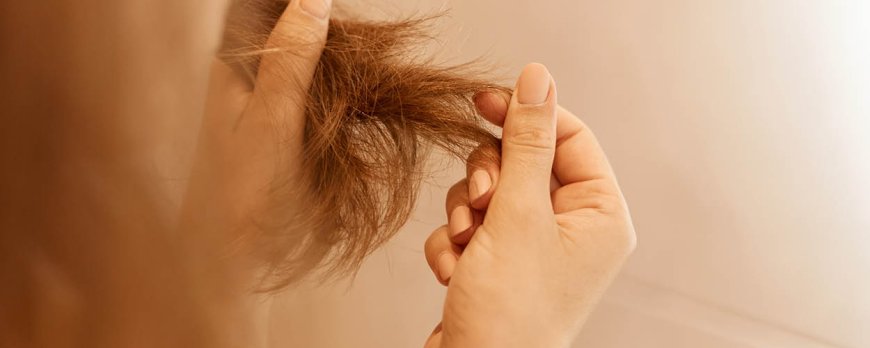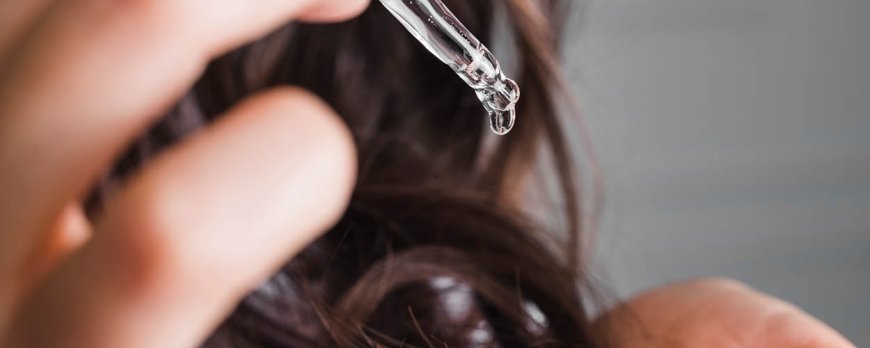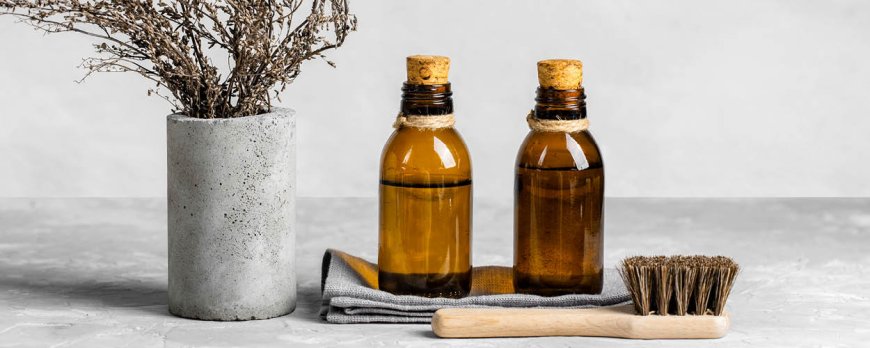How long will hair grow in 6 months?
Explore the answer to 'How long will hair grow in 6 months?' and delve into the factors that influence your hair's growth rate. Don't miss out!

How long will hair grow in 6 months?
When it comes to hair growth, many people wonder how much length they can expect in a 6-month period. On average, hair grows at a rate of ½ an inch per month, which means that in 6 months, hair can grow about 3 inches. While some individuals may experience higher growth rates of up to ¾ or 1 inch per month, this is considered uncommon. However, it's important to note that hair growth rates can be influenced by various factors.
Key Takeaways:
- On average, hair grows at a rate of ½ an inch per month.
- In 6 months, hair can grow about 3 inches.
- Higher growth rates of up to ¾ or 1 inch per month are less common.
- Hair growth rates can be affected by factors such as hair loss conditions, scalp disorders, and age.
- Using hair loss medications may require a few weeks to months to see results due to initial shedding and the transition of hair follicles into the active growth phase.
- Maintaining a healthy lifestyle, including a nutritious diet, adequate sleep, low stress levels, not smoking, and regular exercise, can optimize hair growth.
Understanding the Hair Growth Cycle
Before we can determine how long hair will grow in 6 months, it's important to understand the hair growth cycle and its different phases. The hair growth cycle consists of three main phases: anagen, catagen, and telogen.
Anagen Phase
The anagen phase is the active growth phase of the hair follicles. During this phase, the cells in the hair bulb divide rapidly, resulting in the production of new hair strands. On average, the anagen phase lasts for around 2 to 7 years, depending on various factors such as genetics and overall health.
Catagen Phase
The catagen phase is a transitional phase that follows the anagen phase. It signals the end of active hair growth and the beginning of regression. This phase lasts for about 2 to 3 weeks. During the catagen phase, the hair follicles shrink in size, and the hair strands detach from the blood supply, preparing for the next phase.
Telogen Phase
The telogen phase is the resting phase of the hair growth cycle. It lasts for approximately 2 to 3 months. During this phase, the hair follicles are dormant, and the old hair strands are released from the scalp, making way for new hair to grow. On average, about 10 to 15 percent of hair follicles are in the telogen phase at any given time.
The hair growth cycle is unique to each individual, and the duration of each phase can vary. Factors such as genetics, age, hormonal changes, and overall health can influence the length of each phase and, consequently, the rate at which hair grows. By understanding the hair growth cycle, we can better comprehend the factors affecting hair growth and how to optimize it.

Average Hair Growth Rate
On average, hair grows at a rate of approximately ½ an inch per month. This means that in 6 months, hair can grow about 3 inches. While some individuals may experience higher growth rates of up to ¾ or 1 inch per month, this is considered uncommon. It's important to note that hair growth rates can be influenced by various factors, including hair loss conditions, scalp disorders, and age.
When it comes to using hair loss medications, such as Minoxidil, Finasteride, or Spironolactone, it's essential to have realistic expectations. It may take a few weeks to months to see noticeable results. This is because these medications often lead to initial shedding before hair follicles transition into the active growth phase.
To optimize hair growth, it's crucial to maintain a healthy lifestyle. This includes following a nutritious diet that is rich in vitamins and minerals essential for hair health. Adequate sleep, low stress levels, not smoking, and regular exercise can also positively impact hair growth. Incorporating these lifestyle factors can help promote overall hair health and contribute to the optimal growth rate.
Factors Affecting Hair Growth:
- Genetics
- Age
- Hormonal changes
- Underlying health conditions
- Diet and nutrition
- Scalp health
- Stress levels
- Medications
Understanding these factors can help individuals identify potential reasons for slow hair growth or hair loss. By addressing these underlying factors and incorporating healthy habits, it is possible to support and enhance the natural hair growth process.
Factors Affecting Hair Growth
Several factors can significantly impact the rate at which hair grows, making it essential to consider these factors when estimating hair growth in a 6-month period. Understanding these factors can help individuals take steps to promote healthier and faster hair growth.
Hormonal imbalances: Hormonal changes, such as those experienced during pregnancy or menopause, can affect hair growth. Conditions like polycystic ovary syndrome (PCOS) can also disrupt the balance of hormones and lead to hair loss or slower hair growth.
Diet and nutrition: A nutritious diet plays a crucial role in hair growth. Lack of essential vitamins and minerals, such as iron, biotin, and zinc, can contribute to hair thinning and slow growth. Including foods rich in these nutrients, such as leafy greens, eggs, and nuts, can help support healthy hair growth.
- Stress and anxiety: High levels of stress and anxiety can disrupt the hair growth cycle and lead to hair loss. Practicing stress management techniques, like exercise, meditation, or therapy, can help maintain a healthy hair growth rate.
- Scalp health: A healthy scalp is crucial for optimal hair growth. Conditions like dandruff, psoriasis, or excessive oiliness can hinder hair growth. Regular cleansing, gentle exfoliation, and using products suitable for your scalp type can promote a healthier environment for hair growth.
- Age: Hair growth tends to slow down as we age. As we get older, the anagen (growth) phase of the hair growth cycle shortens, leading to shorter and thinner hair.
- Genetics: Genetic factors can determine the maximum potential for hair growth. While some individuals naturally have faster hair growth rates, others may have slower rates due to their genetic makeup.
Optimizing hair growth involves addressing these factors and incorporating healthy habits into one's lifestyle. Taking care of both internal and external factors can lead to stronger and faster hair growth. It is important to consult with a healthcare professional or a trichologist for individualized advice and guidance.

Tips for Promoting Hair Growth
If you're looking to optimize your hair growth potential, there are several tips and remedies that can help promote healthy and lustrous locks. While individual results may vary, incorporating these practices into your everyday routine can support the natural growth and vitality of your hair.
- Follow a nutritious diet: Consuming a diet rich in vitamins and minerals is essential for hair health. Include foods that are high in biotin, vitamin E, and iron, such as leafy greens, nuts, seeds, and lean proteins.
- Prioritize scalp health: A healthy scalp is the foundation for strong and vibrant hair. Regularly cleanse your scalp and exfoliate to remove buildup and promote a clean environment for hair growth. Consider using a gentle shampoo and conditioner formulated specifically for your hair type.
- Take vitamins for hair growth: Certain vitamins, such as Biotin and Vitamin D, can play a crucial role in promoting hair growth. Consult with a healthcare professional to determine if supplements are necessary for your specific needs.
- Minimize heat and chemical damage: Excessive heat styling and frequent use of chemical treatments can weaken and damage hair. Limit the use of heat tools, such as curling irons and straighteners, and opt for protective hairstyles or natural air-drying when possible.
- Maintain a low-stress level: Stress can have a negative impact on hair growth. Practice stress management techniques, such as meditation, deep breathing exercises, or engaging in hobbies that help you relax and unwind.
While these tips can contribute to promoting hair growth, it's important to remember that individual results may vary. Patience and consistency are key when implementing any new hair care routine. And always consult with a healthcare professional or trichologist for personalized advice and guidance.

Debunking Hair Growth Myths
There are numerous myths and misconceptions surrounding hair growth that can often lead to confusion and misinformation. Understanding the truth behind these myths is essential for anyone hoping to promote healthy hair growth. Let's take a closer look at some common hair growth myths and separate fact from fiction.
Myth 1: Cutting your hair frequently makes it grow faster
Many people believe that trimming their hair regularly will result in faster growth, but this is simply not true. Hair growth occurs at the scalp, not at the ends. While regular trims can help keep your hair looking healthy by preventing split ends, they do not directly affect how quickly your hair grows.
Myth 2: Shampooing too often can cause hair loss
Contrary to popular belief, washing your hair frequently does not lead to hair loss. In fact, maintaining a clean scalp is important for overall hair health. However, harsh shampoos or excessive use of heat styling tools can weaken the hair shaft, leading to breakage. It's important to use gentle products and avoid excessive heat to keep your hair strong and healthy.
Myth 3: Stress is the main cause of hair loss
While stress can contribute to hair loss in certain cases, it is not the sole factor. Hair loss can be caused by a variety of reasons, including genetics, hormonal imbalances, and certain medical conditions. Stress may exacerbate these underlying factors, but it is not the primary cause.
By debunking these common hair growth myths, we can better understand how to care for our hair and promote healthy growth. Remember, maintaining a healthy lifestyle, using gentle hair care products, and seeking professional advice when needed are essential for achieving luscious locks.

Hair Loss Medications and Hair Growth
For individuals experiencing hair loss, medications such as Minoxidil, Finasteride, and Spironolactone may be recommended to stimulate hair growth. These medications have been clinically proven to help slow down hair loss and promote regrowth in both men and women. However, it's important to note that results may vary, and it may take some time to see noticeable improvements.
When starting hair loss medications, it's common to experience initial shedding. This can be disheartening, but it's actually a sign that the medication is working. Shedding occurs as old, weak hairs are pushed out to make way for new, stronger ones. It's a necessary part of the hair growth process and should subside after a couple of weeks.
The transition of hair follicles into the active growth phase can also take some time. It typically takes several months for hair follicles to respond to the medication and start producing thicker and healthier strands. Patience is key when using hair loss medications, as consistent use over an extended period is required to achieve optimal results.
To enhance the effectiveness of hair loss medications, it's important to maintain a healthy lifestyle. A nutritious diet rich in vitamins and minerals, such as iron, zinc, and vitamin D, can help support hair growth. Adequate sleep, managing stress levels, avoiding smoking, and incorporating regular exercise into your routine can also contribute to overall hair health.
Importance of Lifestyle Factors
Maintaining a healthy lifestyle is crucial not only for overall well-being but also for promoting optimal hair growth. The condition of your hair is a reflection of your overall health, and making positive lifestyle choices can greatly enhance its growth and appearance. Here are some key factors to consider:
- Nutritious Diet: A well-balanced diet rich in vitamins, minerals, and proteins is essential for healthy hair growth. Include foods like fruits, vegetables, lean meats, fish, nuts, and seeds to provide your hair with the necessary nutrients for growth and strength.
- Adequate Sleep: Getting enough quality sleep is important for your body's overall health, including hair growth. During sleep, your body repairs and rejuvenates itself, allowing your hair follicles to function optimally.
- Low Stress Levels: Chronic stress can have a negative impact on hair growth, leading to hair loss or thinning. Incorporate stress-reducing activities into your daily routine, such as meditation, exercise, or hobbies, to promote a healthier hair growth environment.
- Avoid Smoking: Smoking damages blood vessels, reducing blood flow to the hair follicles and inhibiting hair growth. Quitting smoking not only improves your overall health but also benefits your hair's vitality.
- Regular Exercise: Engaging in regular physical activity improves blood circulation, which promotes hair growth. Aim for at least 30 minutes of moderate exercise, such as walking, jogging, or cycling, most days of the week.
Summary
Achieving optimal hair growth involves more than just topical treatments and hair care products. It requires adopting a holistic approach to your overall well-being. By maintaining a healthy lifestyle that includes a nutritious diet, adequate sleep, low stress levels, not smoking, and regular exercise, you can create an ideal environment for your hair to grow and thrive. Remember, consistency is key, and over time, you will see the positive effects of these lifestyle choices reflected in the health and growth of your hair.
Conclusion
In conclusion, the rate at which hair grows in 6 months can vary depending on several factors, but on average, it can grow approximately 3 inches. By understanding the hair growth cycle, considering the factors that influence hair growth, and implementing healthy lifestyle practices, you can optimize your hair growth potential.
On average, hair grows at a rate of ½ an inch per month, which means that in 6 months, hair can grow about 3 inches. Some lucky individuals may experience higher growth rates of up to ¾ or 1 inch per month, but this is uncommon. Hair growth rates can be affected by factors such as hair loss conditions, scalp disorders, and age.
When using hair loss medications, such as Minoxidil, Finasteride, or Spironolactone, it may take a few weeks to months to see results due to initial shedding and the transition of hair follicles into the active growth phase. It is important to be patient and consistent with the use of these medications, as they can help promote hair growth over time.
To optimize hair growth, it is also important to maintain a healthy lifestyle. This includes consuming a nutritious diet, which provides the necessary vitamins and minerals for hair growth. Adequate sleep and low stress levels are also crucial, as they can help support overall health and wellbeing, which in turn promotes healthy hair growth. Additionally, avoiding smoking and engaging in regular exercise can contribute to a healthy scalp and strong hair.
By understanding the factors that can affect hair growth, and taking proactive measures to promote healthy hair growth, you can work towards achieving the hair length and thickness you desire. Remember, every individual is unique, and results may vary. It is always recommended to consult with a healthcare professional or dermatologist for personalized advice and guidance.
FAQ
How long does hair typically grow in 6 months?
On average, hair grows about 3 inches in 6 months.
What factors can affect hair growth rate?
Hair growth rates can be influenced by factors such as genetics, age, overall health, scalp conditions, and hair loss conditions.
How long does it take to see results when using hair loss medications?
It may take a few weeks to months to see results when using hair loss medications, as there may be an initial shedding phase and the transition of hair follicles into the active growth phase.
What can I do to promote hair growth?
Maintaining a healthy lifestyle, including a nutritious diet, adequate sleep, low stress levels, not smoking, and regular exercise, can help optimize hair growth.


































































































































